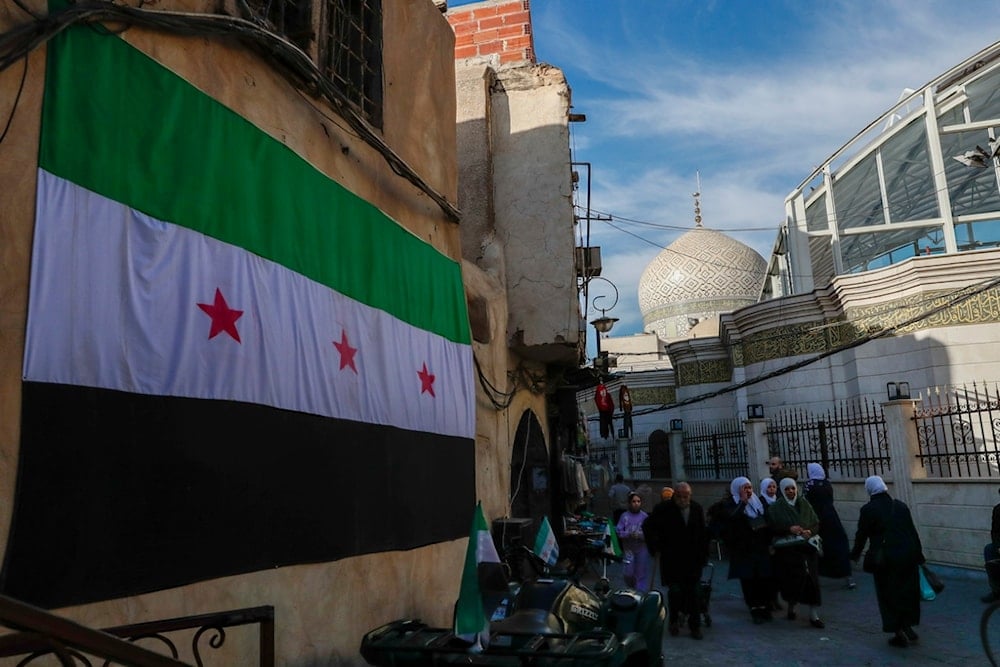UN investigators enter Syria for first time in 13 years
The COI, tasked with documenting crimes committed by all parties to the war, had been investigating remotely since its establishment in 2011.
-

A flag hangs in the Old City of Damascus, Syria, Thursday, January 9, 2025, backdropped by the Sayyidah Ruqayya shrine. (AP)
For the first time in over a decade, UN investigators have gained access to Syria, a significant milestone in efforts to address the atrocities committed during the war on Syria.
The UN Commission of Inquiry on Syria (COI) now hopes to engage directly with Syria's new rulers in their pursuit of justice.
"It is a huge surprise to be in Damascus," said Hanny Megally of the COI, expressing optimism about the development. "We hope to be able to have a good relationship with the authorities now in place."
Remote investigations
The COI, tasked with documenting crimes committed by all parties to the war, has been investigating remotely since its establishment in 2011. Interviews with thousands of refugees and defectors, combined with an extensive archive of documents, formed the basis of its work. However, the absence of access to Syria itself raised questions about the credibility and completeness of its findings.
Assad's government had consistently denied entry to the investigators, citing concerns over bias and allegations of fabrication. These concerns were rooted in the geopolitical context of the war, with Syria accusing Western powers of using investigations and human rights discourse as tools to legitimize intervention.
The Syrian authorities argued that reports often relied on opposition-linked sources and refugees, which they claimed could lead to exaggerated or fabricated allegations.
Read more: Russia condemns Western claims on Syria's chemical weapons
Verifying evidence
The political shift following al-Assad's ousting has now opened doors for the COI. During a five-day visit, Megally toured mass grave sites and detention centers in Damascus and held meetings with officials from the justice and foreign ministries.
He stressed the importance of verifying previously gathered evidence and addressing gaps. "We want to be able to now go to the places we were documenting without access to the country to reconfirm, in essence, the information we've been gathering," he said.
The COI's work remains expansive, covering crimes committed by all factions in the conflict, including former opposition members now in power. "There's no party to the conflict in Syria that can say: 'We observed human rights law or we observed international humanitarian law,'" Megally noted.
Read more: Syrian Alawites live in fear amid ongoing violence, reprisals: WashPo

 3 Min Read
3 Min Read








